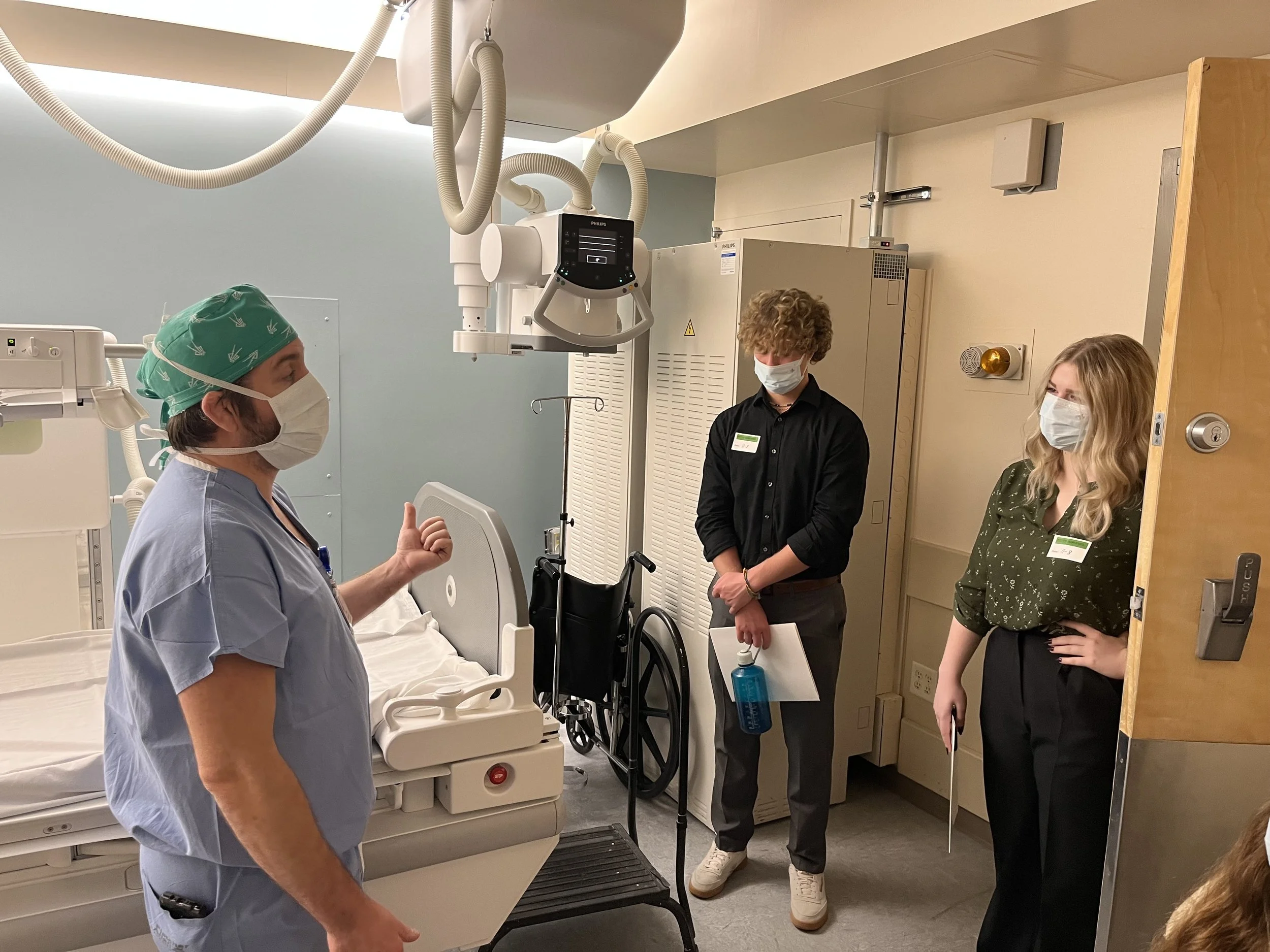Underground Workshop: From classroom to career
First year students from the Heavy Equipment Operators program at River
Bend Career and Technical Center work with a bulldozer at the outdoor lab
for the program. Photo credit: Bob Jones
Cecilia Luce is a Thetford Academy student working with the Underground Workshop, a network of student journalists across Vermont partnering with Community News Service.
Students at River Bend Career and Technical Center in Bradford, Vermont, are doing more than hands-on learning. They’re preparing for careers that are facing an increase in labor shortages.
Most students at River Bend take part in one of 12 half-day programs, which range from culinary arts to diversified agriculture to criminal justice. The Automotive Technology program teaches students to do bodywork for cars, including painting and pounding dents out. It’s “pretty much everything I do for fun,” said Cooper Hebb, an 11th grader at Thetford Academy.
River Bend is one of 17 tech centers in Vermont, but its demographics are unique. It is a regional tech center, meaning that five different schools–Blue Mountain Union, Woodsville, Oxbow, Rivendell Academy, and Thetford Academy–send students. Those schools are located in both Vermont and New Hampshire due to River Bend’s proximity to the state border.
Two students from the Health Science program at River Bend Career and
Technical Center dissect a donated heart from a bear, as part of an anatomy
unit in the class. Photo credit: Tracy Puffer
Tech centers like River Bend used to be available only to upperclassmen. But in recent years, 10th graders have been accepted because there are too many available jobs in technical fields and not enough employees to fill them.
“We’re so far behind in keeping up with the amount that we need in Vermont and New Hampshire,” said Brian Emerson, director and alumnus of River Bend. “There’s a real crisis.”
Emerson has observed that negative stereotypes about technical centers have prevented students from taking advantage of River Bend’s programs.
“There’s still a misconception out there that if you’re interested in going to college, you don’t go to [a] tech center,” he said, “and that’s wrong.” Opportunities at River Bend can serve as a bridge between traditional education and the real world.
“You put the two together, and that’s good learning,” Emerson said.
Nattaly Adams, a 12th grader at Thetford Academy who participates in the Culinary Arts program, has worked with River Bend since her 11th grade year. She described her experience as “crazy,” especially regarding catering events, but she has enjoyed the program despite the chaos. She hopes to have her own food truck someday.
“It’s just fun in the kitchen,” Adams said.
Students in the Culinary Arts program at River Bend Career and Technical
Center practice their individual entrees as they prepare for the 2023 ProStart
Competition hosted by the New York State Restaurant Association.
Photo credit: Bob Jones
“One of our greatest goals is to have [each student] be a happy, contributing member to society,” Emerson said. Despite the continued stigma, Emerson has observed growth in tech centers since the implementation of Act 77. Emerson stated that many of the changes he has observed have come from “strong political pressure.”
For example, increased flexibility in graduation requirements has allowed students to earn more academic credit for River Bend programs than ever before.
“I wouldn’t say [high schools] are completely accommodating,” said Emerson, “but there’s movement.”
He feels that Vermont’s gradual acceptance of Act 77 is in good time. “Just like in any job, you’re either going to change with the times or you die,” he said. “In the business world, that’s what happens.”
Editors’ Note: Some of the reporting for this story was conducted in spring 2023 as part of an effort to examine the effects of Act 77, a law that was passed in Vermont 10 years ago. Act 77 created and expanded different Flexible Pathways, opportunities for learning that fall outside of the typical high school experience. These pathways include dual enrollment, technical education, early college, and project-based learning. Act 77 also created the proficiency-based learning model, which is being implemented in schools across Vermont.









